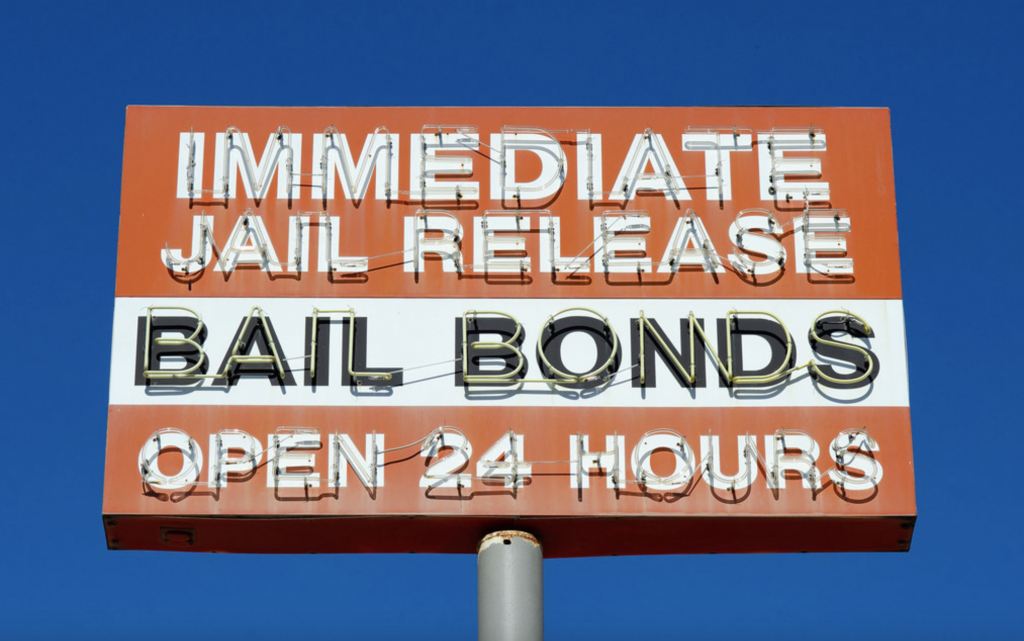What are the types of bail bonds and which ones might be right for you?
If you or your loved one had been arrested and you want to post bail, you should know that you have the option to choose from several types of bail bonds available. At the bail hearing, the judge will determine the amount of the bond depending on the circumstances of the alleged criminal act.
There are seven types of bail bonds. Some are pretty specific and can be applied to the case only in certain circumstances; others are used more frequently. Some are severe, others less so. In all cases, the accused has a legal obligation to show up for their court appearances and maintain contact with a judge throughout this period. And all have financial consequences if the defendant doesn’t comply. For example, the bailee is on the hook for the entire amount if bail is skipped, whereas the bail bondsperson assumes the risk.
The seven types of bail bonds are:
- Surety Bonds
- Cash Bail Bonds
- Property Bonds
- Citation Release
- Recognizance Release
- Federal Bail Bonds
- Immigration Bail Bonds
Read on to discover each bond’s rules, regulations, laws, and purpose.
Surety Bonds
The most standard form of bail bond, it’s a legal contract between the defendant, the court, and a bonding company. This contract’s purpose is to guarantee that the defendant won’t miss any of their court appearances. It’s essentially a risk mitigation tool.
A surety bond is implemented when the bail bond company, hired by the defendant or on the defendant’s behalf, posts the full bail amount and charges a non-refundable fee for this service. Surety bonds don’t require collateral or evidence of material possessions, unlike property bonds. If the bail is set at more than $1,000, the defendant (or whoever — it can be a family member or a friend) pays the percentage of their posted bail. In Louisiana, it’s typically 12%, and it’s 10% in some other states.
Many defendants choose this type of bond because it’s more affordable than paying the whole amount, as in the case of cash bail bonds.
Cash Bail Bonds
Cash bail bonds are what they sound like: You pay the full amount of the set bail with cash. Like with surety bonds, it’s an incentive to attend all required court dates and scheduled appointments during your trial, but the difference is that, with compliance, you get all that money back. This is the best and the easiest option — if you can afford it. No fees, and money back (again, provided that you play by the rules).
Property Bonds
Property bonds are also pretty self-explanatory. They are bail bonds paid by property collateral. Real estate is the most common type of property bond, but other types are also sometimes possible (jewelry, stocks, cars, etc.). Property bonds are not accepted in every state in the United States, but they are accepted in Louisiana. This type of bond requires using the full rights of the property, no partials.
It’s a perfectly fine type of bond if you have property you can use as collateral. The biggest disadvantage of choosing a property bond is that, while other types of bonds can take only a few hours to go through, it can take weeks to secure a property bond because of the amount of inspections and paperwork involved.
Citation Release
This type of bond is a legal citation (a ticket) written by the law enforcement officer instead of taking the alleged offender into custody. It’s typically used for low-level crimes like traffic violations and non-violent misdemeanors. There is no pretrial detention, only setting a court date. You must pay the full amount of the citation to avoid legal consequences. The decision of whether to issue a citation instead of taking any other action is at the discretion of the arresting officer.
Recognizance Release
This is a desirable type of bail as no money or using property as collateral are involved. If the judge determines that the defendant could be granted freedom based on trust, with a promise to appear in court as required, the defendant doesn’t have to pay anything. It’s basically a no-cost bail.
Federal Bail Bonds
Federal bail bonds are the same as regular bonds except they are only used in federal cases. If you are arrested and brought into court in a federal case, bail will be determined at a detention hearing before a federal magistrate judge. Unfortunately, the laws and processes related to pretrial detention in federal court are much more complicated than in state court. The bail amounts for federal offenses can also be quite high. We recommend that you retain a defense attorney or turn to a professional bond company, or both, if you’ve been charged with a federal crime.
Immigration Bail Bonds
This type of bond can be only used by defendants who are not citizens of the United States. They work the same as regular bonds, but typically have stricter requirements due to their international nature. They can also be complicated and take a long time to secure. Just like with the federal bail bonds, we recommend that you hire a bail bond company and seek legal representation from a defense attorney.
Which Type of Bail Bond Is Best for Me?
It depends on the charge, your financial situation, the bail amount, the options available in your jurisdiction, and more. To determine the best type of bail bond for your situation, consider:
- The availability of bond options where you live. For example, if you own property, a property bond may be an option, but it may not be available in your jurisdiction.
- Your financial situation. If you can afford to pay the full bail amount, a cash bond might be the easiest, quickest, and the best option overall. But surety might be a viable choice if you can’t afford the full amount but can afford a percentage of it.
- Whether you want to pay the fees. If you can swing it, again, a cash bail bond is a good option because you’ll get all of your money back if you comply with all your court appearances. With a surety bond, the fees are non-refundable regardless of the verdict. But that might be your only option if you can’t afford to pay the full bail amount.
In any case, we recommend consulting with legal professionals like bail bond agents and defense attorneys who can help you understand the pros and cons of each type of bail bond as it applies to your specific circumstances and local regulations and guide you in making an informed decision.
Frequently Asked Questions About Types of Bail Bonds
What are the most common types of bail bonds?
There are several types, but only one or two might be available to you, depending on your charge and where you live. Surety bonds, property bonds, cash bonds, citation releases, and releases on recognizance are the most common, but there are also federal and immigration bonds that only apply to federal offenses and offenses committed by non-citizens of the U.S., respectively.
How much is a surety bond in Louisiana?
In Louisiana, a surety bond will cost the defendant 12% of the total bail amount, but it varies in other states.
What are the alternatives to monetary bail?
There are several alternatives to monetary bail bonds, including home confinement and pretrial services (government-run supervision programs). Recognizance release is still considered a bond option, but it’s a no-cost bail option, so you’re not paying any money.
How long does it take to get a bail bond in Louisiana?
For most misdemeanors, defendants can usually be booked and post bond within a few hours. For more serious crimes, the State of Louisiana requires defendants to be brought before a judge within 72 hours of arrest, and bail can be set during their arraignment.
Choose the Best Type of Bail Bond for You
Bail Bonds St. Tammany is an owner-operated bonding company with several locations throughout the state of Louisiana. We have been in the industry for over 20 years, and we’re available 24/7. We treat our clients with respect and a firm belief in “innocent until proven guilty.”
We process all bond payments securely and our friendly staff is efficient and hardworking, getting all the required paperwork done as quickly as possible. We do not want you or your loved ones to stay in custody longer than necessary. Our staff will make the entire process of obtaining bail simple and painless. Let our industry knowledge work for you. We offer payment plans, too. For more details on the types of bail bonds we offer, and to get started, call any of our locations, or fill out an online form.
Image source: Dave Matthews via Flickr




